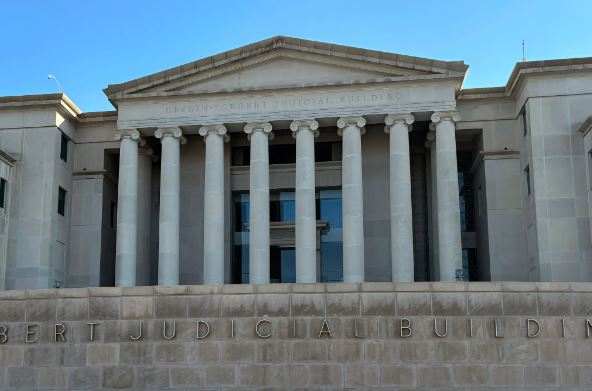The recent ruling by the Alabama Supreme Court, declaring frozen embryos as children, has sparked a wave of controversy and concern within the realm of reproductive medicine. This landmark decision has raised complex legal questions and cast doubt over fertility care for prospective parents in the state, with ramifications extending far beyond Alabama’s borders.
The ruling, issued in response to appeals cases involving couples whose embryos were destroyed in a hospital mishap, has sent shockwaves through the medical and legal communities alike. Referencing language in the state constitution pertaining to anti-abortion sentiments, the judges’ majority opinion invoked an 1872 statute allowing parents to sue over the wrongful death of a minor child, applying it to unborn children without exception for those outside the womb.
Chief Justice Tom Parker, in a concurring opinion, cited scripture and emphasized the sanctity of life, stating that even before birth, all human beings bear the image of God and their lives cannot be destroyed without erasing his glory. This interpretation has significant implications, effectively elevating microscopic embryos to the legal status of children.
Infertility specialists and legal experts have expressed deep concerns about the potential ramifications of this ruling. Barbara Collura, president and CEO of Resolve, an organization representing infertility patients, emphasized that one in six families grapples with infertility, highlighting the widespread impact of the decision. The ruling effectively changes the legal status of embryos and raises questions about the legality of common reproductive practices such as in vitro fertilization (IVF) and embryo freezing.
Traditionally, IVF protocols involve fertilizing multiple eggs to create embryos, which are then frozen for future use. However, the ruling has created uncertainty about the legality of this practice, leaving providers and patients in a state of limbo. Reproductive medicine scientists have condemned the decision as medically and scientifically unfounded, arguing that embryos in a fertility clinic freezer should not be equated with existent children or fetuses.
Dr. Paula Amato, president of the American Society for Reproductive Medicine, emphasized that while the court may consider frozen embryos as legally equivalent to children, science and common sense dictate otherwise. She underscored the importance of recognizing the distinction between embryos in a laboratory setting and those gestating in a womb.
The ruling has also raised concerns about the future of fertility care in Alabama. Dr. Amato warned that young doctors may be deterred from training or practicing in the state, while existing fertility clinics may face closure due to the risk of civil or criminal charges. This, she predicted, would result in modern fertility care becoming unavailable to the people of Alabama.
Couples undergoing infertility treatments in the state have been left reeling from the ruling, grappling with uncertainty and anxiety about the fate of their reproductive journeys. Megan Legerski, a Tuscaloosa resident currently undergoing infertility treatment, expressed her apprehension about the impact of the ruling on her family’s hopes of having children. While she remains hopeful about the embryos in storage, she acknowledges the profound difference between having embryos in the freezer and experiencing a successful pregnancy.
In response to the ruling, the Biden administration has voiced concerns about its potential to disrupt reproductive care and infringe upon personal decision-making. The administration has called on Congress to codify protections for reproductive rights, echoing broader efforts to safeguard access to essential healthcare services.
Overall, the Alabama Supreme Court’s ruling on frozen embryos has ignited a contentious debate surrounding reproductive rights, legal definitions of personhood, and the future of fertility care in the state. As stakeholders grapple with the implications of this decision, the broader conversation about reproductive autonomy and healthcare access continues to evolve.

